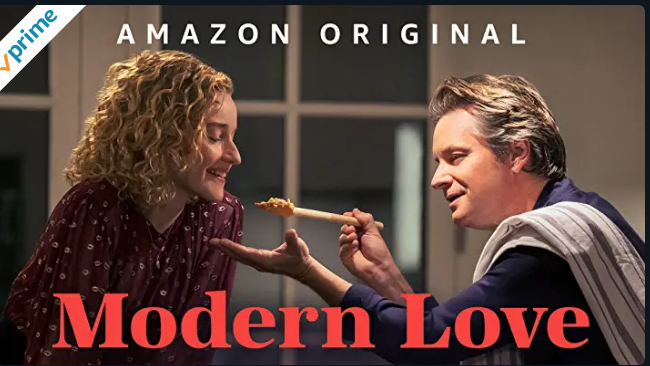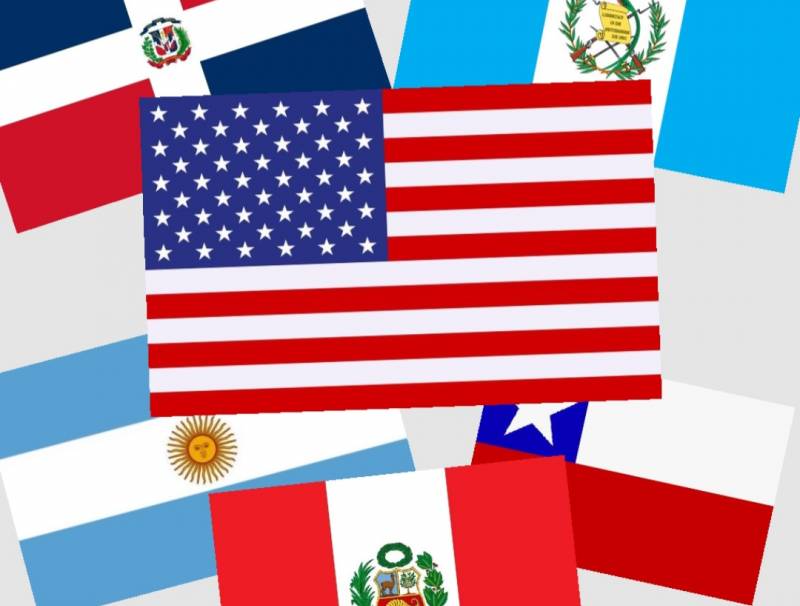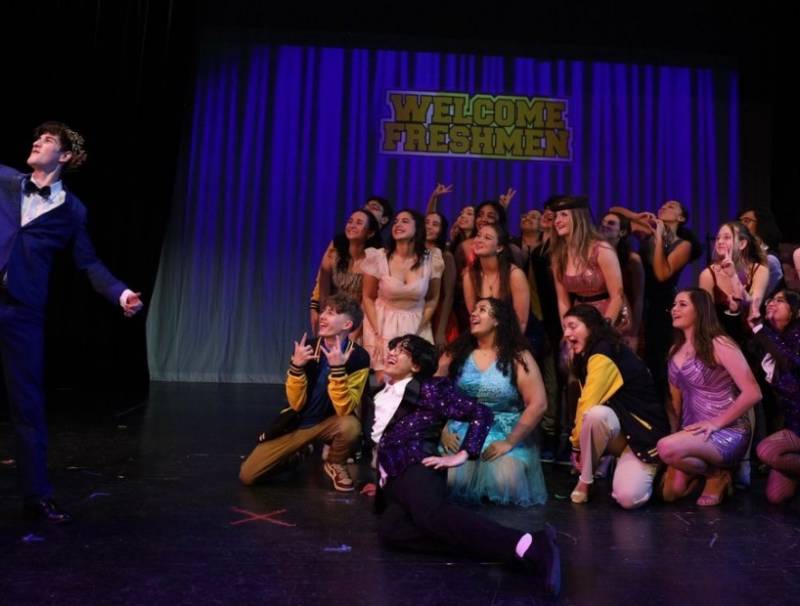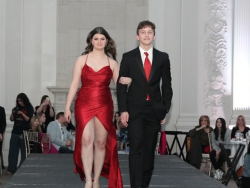Modern Love Review- Love in Its Many Forms
"Modern Love" is a column run by the New York Times where anyone from anywhere can submit their stories of love. Its main point is to prove that any type of love is valid. Not all love is between two lovers. It can be parents, pets, children, you name it. Not all types of love need to be romantic.
"Modern Love" gained so much attention, a TV series was created about it for Amazon Prime. They take select stories written by people, and make them into a show. The most notable episode in my opinion, is the adaptation of “The Race Grows Sweeter Near Its Final Lap,” by Eve Pell.
The story itself is beautifully written, allowing the reader to see the love between Eve and Sam, the two main characters. It’s written very vaguely, only the bare minimum being shared. It allows the reader to fill in the blanks, making the characters more lifelike. The story focuses on two people specifically. Eve, the author of the story who was 70 at the time, and Sam, who was 80.
The interactions between the characters are raw and real. You can see the emotions that the author put into this piece. For example, the scene when Eve mentions Sam’s late wife who had died, and how it may affect her relationship with him:
In my younger years I would have felt competitive, as if his love for her meant less for me. Now I knew differently, and one night I spoke my mind.
“I know that you loved Betty very much, and I have great respect for your marriage,” I began. “But I think you have room in your heart for me, too.”
Just this small scene packs so much feeling it's crazy. The wording of her dialogue brings attention to the fact that yes, they’re old, but they can still have feelings. The whole point of this piece of writing is to prove that Old Love can be just as strong as Young Love.
The problem with stories like this though, is that to some people they often fall flat. That's where the TV show comes in. It can give people visuals of the things they’re reading.
The show, or the episode that covered this story, gained a good amount of positive feedback. It didn’t exactly follow the original text, but it was still just as heartwarming. A more sizable plot is formed, but it takes away from the text’s original feeling of timelessness. The personalities of the characters are also developed further. However, the show does fall short on one thing, which is chemistry.
The actors who played Eve and Sam, or Margot and Kenji in the show, didn’t have the chemistry I expected for a show about love. It sounded awkward at times, the dialogue was choppy at times. Granted, it is very hard to mimic the feelings of love. Or maybe, these pieces of unnatural sounding dialogue were done on purpose to show the viewer the ups and downs of actually falling in love. The episode is filled with awkward moments, but the awkward interactions between characters can seem like a deliberate choice.
The show does combat this problem by relying more on visuals than dialogue to show the reader that the plot is moving forward. It had good montages of the touching moments between Margot and Kenji.
Both the text and the show had moments of love between Eve/Margot and Sam/Kenji. A thing that threw me off though, is how both pieces handled Sam/Kenji’s death.
You see, in the text the show was based off of, his death is expressed in one short paragraph. It hits the reader in the gut, morphing the pleasant vibe previously expressed into something more somber. The reader had gone through their entire relationship, and for Sam to suddenly die gives a feeling of sadness. It leaves the reader reflecting on all the times the two characters were happy together, and almost mourning his death, just as Eve did.
For the show, the first scene is of Margot getting ready in the morning for the funeral of Kenji. The watcher isn’t given any context, and left wondering what was happening. As the episode goes on, the watcher puts the scene in the back of their minds, enjoying the charming depictions of love. Then in the end, when it's revealed the meeting, and the falling in love of Kenji and Margot was a flashback, the entire episode gains a bittersweet feeling to it.
Unlike the writing which hits you in the stomach with the death, the show leads you up to it with the first scene, along with the voice over which frequently accompanied the scenes of happiness.
The writing and the show both have different aspects to them. One is more of a recollection of past love, while the other focuses more on pulling together an understandable plot around the love of two people. They’re similar, yet different, which is just what stories that get turned into shows should be. But in the end of both the show and the writing, the audience is left with a bittersweet taste in their mouth and a melancholy feeling to ponder.









